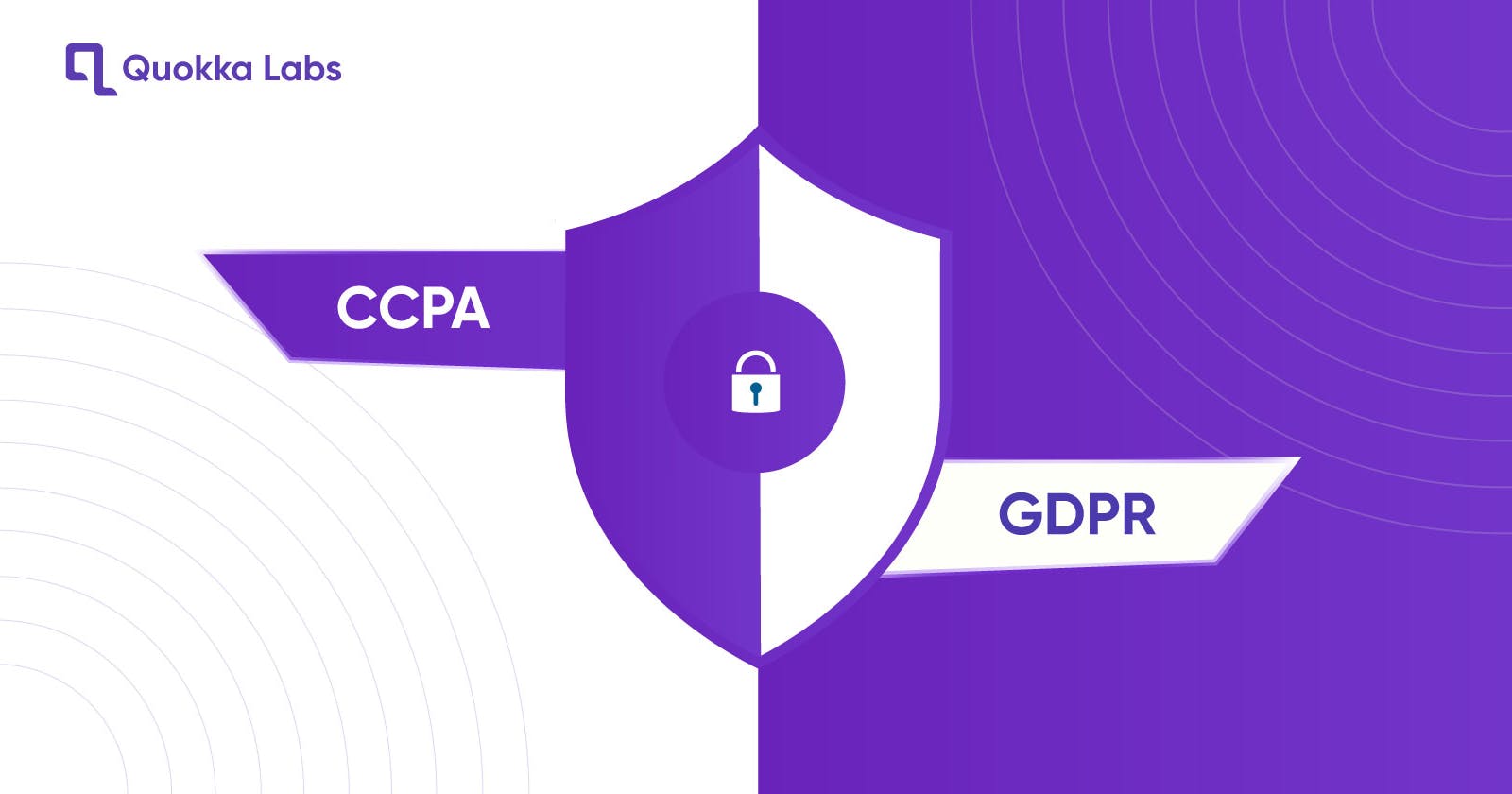Developing just an excellent featured app is not just only a task! As a developer, you must verify international data privacy laws before deploying the App to Play Store and Apple Store. For any developer, before proceeding to mobile and web app development, there are the essential factors we are looking at in this blog. Let's have a look.
US Law (CCPA)
CCPA stands for California Consumer Privacy Act. CCPA has been active since July 1st, 2020. It gives substantial rights to consumer privacy. Businesses focusing on California residents must follow CCPA in their statements. Every mobile app development company must follow it. This statement contains topics, consumer interests, processing partners, and more. Other categories are like:
- Right to opt-out from selling personal info
- A privacy policy link/page of the organization with a source
- Right to opt-out minor's data from selling
- All categories and purposes of using personal information that is collected by businesses
EU Law (GDPR)
GDPR stands for "General Data Protection Regulation." It states the proper ways for processing or using personal data under the law. GDPR applies to you if your business is in the EU and your customers are in the EU. GDPR is stricter than US laws. Before using personal information, consent is required. It is helpful to know all Mobile and web app development companies.
Also, it is good to know that these rules prohibit pre-ticket boxes under consent. So, a mechanism that is obtaining your data must be transparent and must ask users if they want to share personal data or not.
Also, a cookie law in the EU asks for your permission to accept cookies. Users are notified when they first log on to the website and must choose to deny or accept. The cookies are stored on devices and tracked. This also applies during an app install.
How To See If Your App Is GDPR Compliant?
To be compliant with GDPR policy should be
- Updated
- Makes sense
- Easy to read and understand
- Accessible through the entire app
The app store can reject your app if it does not come under law or lacks a privacy policy. All apps must comply with laws and have a sensible privacy policy that is also accepted by the Google Play Store and Apple App Store. Well, suppose you don't comply with it. In that case, you may receive many fines, legal actions, harming brand reputation, and rejection of your app from digital stores.
Rights Of Individuals Under GDPR
- Right to access data
- Right of restriction of processing
- Right to data portability
- Right to object
- Right to rectification
- Right to be informed
- Right to erasure
DPO – Data Protection Officer
Organizations hire DPO who streamline compliance of apps with laws under GDPR. A DPO is required if your company
- is a government or public body or a university.
- Internally takes/monitors data from users in the EU.
- Data that relates to criminal convictions or offenses.
Android and iOS apps
Any app or best mobile app development company must adhere to the laws of the App Store's privacy policy requirements. Apple App Store laws can be found in article 5.1 under App Store review standards. It includes rejection when the conditions are not matched. Other data gathering and storage details are as below (As per article 5.1.1).
- Privacy Policy: All apps must provide a link or reference to the privacy policy on the App and store connect data field.
- Specifying what information the App gathers, how it gets, and how all data is used should be specified.
- Verify where or with whom data is shared, like analytical tools, ad networks, third-party SDKs, and other usages.
- The policy must clearly show data retention and deletion and how users can delete their data.
Aside from these laws, there are other essential privacy disclosures in the majority of regulations that need to be followed by app developers. In addition, app developers must provide clearly visible notice to users for personal data usage permission. It's necessary to take consent from users before gathering data.
Cookies
Cookies are present in most apps and present on App's website. Cookies help Mobile and web app development companies for many reasons. Cookies are used for retargeting ads and usage data. Suppose you are targeting the EU with non-exempt cookies. In that case, you should abide by the rules written under the ePrivacy Directive and GDPR.
All app developers need consent from cookie legislation to place cookies on the user's device or track them. If you employ cookies in your app or on your website:
- Users must know about cookies or data you are gathering and have consent from the user
- You will need approval from the user before installing cookies
At the first visit of the user, display a cookie banner:
- That makes sure users are aware of cookies.
- Request user consent.
- It should be visible enough to draw attention.
- It should have a reference to a cookie policy.
- Prevent non-exempt cookies before consent.
Final Words
In this blog, I tried to show everything about GDPR, CCPA, and cookie laws you must follow for your mobile and web app development. Well, it's hard to follow all the rules because there is much more to focus on as a business. In this situation, you will need a complete, easy, and fast solution like the best mobile app development company that handles everything from their side. If you are new and control everything from your end, it can take an enormous amount of time, and there's a massive chance of missing lots of laws. I hope you got valuable information. Thanks for reading.

